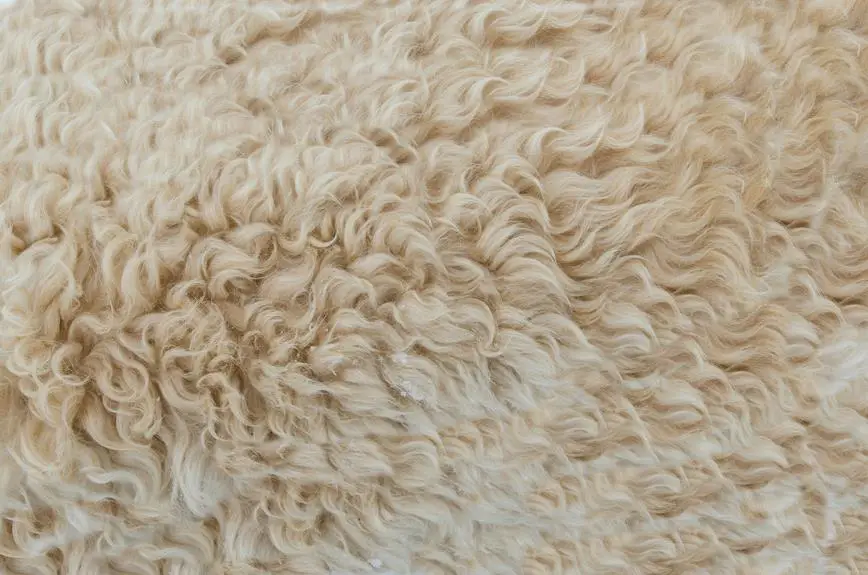If you've ever struggled with skin irritation from traditional fabrics, you might find bamboo fabric to be a game changer. Its natural hypoallergenic properties can offer a gentle alternative that soothes rather than aggravates your sensitive skin. Plus, its moisture-wicking and breathable qualities help keep you dry and comfortable, even in warmer conditions. But there's more to discover about how bamboo fabric not only benefits your skin but also contributes to a sustainable lifestyle. Curious about how it stacks up against other materials?
Table of Contents
Key Takeaways
- Bamboo fabric is soft and breathable, providing comfort for sensitive skin without causing irritation.
- Its natural hypoallergenic properties minimize skin reactions, making it ideal for individuals with sensitivities.
- The moisture-wicking ability keeps skin dry and comfortable by drawing sweat away.
- Antimicrobial qualities help prevent odor and bacteria growth, promoting skin health.
What Is Bamboo Fabric?
Bamboo fabric is a soft, sustainable textile made from the fibers of the bamboo plant, offering a comfortable alternative for those with sensitive skin. This eco-friendly material is derived through a process that involves crushing the bamboo stalks and extracting the cellulose fibers. Once processed, these fibers are spun into yarn and woven into fabric, creating a textile that's not only gentle to the touch but also durable.
You'll find that bamboo fabric has unique properties that make it appealing. It's highly breathable, allowing air to circulate and keeping you cool during warm weather. Plus, its moisture-wicking ability helps draw sweat away from your skin, leaving you feeling dry and comfortable. Bamboo's natural sheen gives it an elegant appearance, making it suitable for various clothing items and home textiles.
Additionally, bamboo is a fast-growing plant that requires minimal resources to cultivate, making it an environmentally friendly option. You'll appreciate how its cultivation can help reduce deforestation and promote sustainability. By choosing bamboo fabric, you're not just opting for comfort; you're also making a choice that benefits the planet and supports eco-conscious practices.
Hypoallergenic Properties
When it comes to sensitive skin, bamboo fabric offers impressive hypoallergenic properties.
Its natural antimicrobial benefits help reduce irritation, while moisture-wicking properties keep you dry and comfortable.
You'll find that wearing bamboo can significantly improve your skin's overall health.
Natural Antimicrobial Benefits
Enjoying the softness of bamboo fabric comes with the added benefit of its natural antimicrobial properties, making it a great choice for those with sensitive skin. Bamboo contains a unique bio-agent called bamboo kun, which helps prevent the growth of bacteria, mold, and mildew. This is especially important if you're prone to skin irritations or infections, as it minimizes the chances of irritation caused by harmful microbes.
When you wear bamboo fabric, you're not just embracing comfort; you're also reducing your risk of skin issues. Unlike some synthetic fabrics that can trap moisture and promote bacterial growth, bamboo allows your skin to breathe while keeping it clean. This means fewer worries about rashes or breakouts.
Additionally, bamboo fabric is hypoallergenic, making it suitable for even the most sensitive skin types. You won't have to deal with the harsh chemicals often found in traditional fabrics, as bamboo is naturally grown without pesticides or fertilizers.
Moisture-Wicking Properties
The moisture-wicking properties of bamboo fabric help keep your skin dry and comfortable, making it an ideal choice for those with sensitivities.
When it comes to managing moisture, bamboo excels by drawing sweat away from your skin and allowing it to evaporate quickly. This feature is especially beneficial for individuals prone to skin irritations or rashes, as excess moisture can exacerbate these conditions.
Here are a few key benefits of bamboo's moisture-wicking capabilities:
- Breathability: Bamboo fabric allows air to circulate, preventing the buildup of heat and moisture that can lead to discomfort.
- Quick Drying: The fabric dries faster than many other materials, ensuring you stay dry even during physical activities or hot weather.
Moisture-Wicking Benefits
When you choose bamboo fabric, you're opting for a breathable material that helps keep you cool and dry.
Its natural moisture-wicking properties pull sweat away from your skin, making it perfect for sensitive skin types.
Plus, bamboo's inherent odor resistance means you can stay fresh and comfortable throughout the day.
Breathable Fabric Structure
Bamboo fabric's breathable structure actively wicks away moisture, keeping your skin dry and comfortable throughout the day. This unique quality is particularly beneficial for those with sensitive skin, as it helps prevent irritation caused by excess sweat.
You'll appreciate how the lightweight weave allows air to circulate, reducing the clammy sensation you might experience with other fabrics.
When you choose bamboo fabric, you're not just opting for comfort; you're also investing in several key advantages:
- Thermal Regulation: Bamboo adapts to your body temperature, keeping you cool in summer and warm in winter.
- Soft Texture: Its smooth fibers glide against your skin, minimizing chafing and discomfort.
Natural Odor Resistance
Thanks to its natural moisture-wicking properties, bamboo fabric resists odors, keeping you feeling fresh even during the most active days. When you sweat, bamboo quickly absorbs and evaporates moisture, preventing that uncomfortable dampness that often leads to unpleasant smells. This means you can engage in your workout routine or outdoor adventures without worrying about lingering odors.
The unique structure of bamboo fibers helps to regulate temperature and moisture, further enhancing its odor-resistant qualities. Unlike synthetic fabrics that can trap sweat and bacteria, bamboo allows your skin to breathe, minimizing the risk of the bacteria that cause bad smells.
You'll appreciate how bamboo fabric feels soft and gentle against your skin, making it an excellent choice for sensitive skin types. With bamboo clothing, you won't just smell good; you'll also feel more comfortable throughout the day. Its natural antibacterial properties work hand in hand with moisture-wicking benefits to provide you with a fresh, clean feeling.
Breathability and Comfort
Because bamboo fabric is naturally breathable, it keeps you cool and comfortable, making it an excellent choice for sensitive skin.
When you wear bamboo, you'll notice how it allows air to circulate, preventing that stuffy feeling often caused by synthetic materials. This breathability helps regulate your body temperature, ensuring you stay comfortable, whether you're at home or out and about.
Additionally, bamboo fabric has moisture-wicking properties that draw sweat away from your skin. This feature isn't just about comfort; it also helps reduce irritation, keeping your skin feeling fresh and dry. You'll appreciate how it minimizes the risk of rashes or discomfort, which is especially beneficial if you have sensitive skin.
Here are some key points about the breathability and comfort of bamboo fabric:
- Temperature Regulation: Keeps you cool in summer and warm in winter.
- Moisture Management: Wicks away sweat, reducing skin irritation.
With bamboo fabric, you're not just choosing comfort; you're prioritizing your skin's health, allowing you to enjoy your day without any distractions.
Eco-Friendly Production
Choosing bamboo fabric means supporting an eco-friendly production process that minimizes environmental impact. Bamboo grows rapidly, needing minimal water and no pesticides, making it a sustainable choice. By opting for bamboo, you're contributing to the reduction of harmful chemicals that often damage ecosystems.
The process of turning bamboo into fabric is also designed to be less harmful. Many manufacturers use a closed-loop system that recycles water and chemicals, thus reducing waste. This method contrasts sharply with conventional cotton production, which often depletes soil and requires extensive water use. When you wear bamboo fabric, you know you're making a choice that aligns with environmental sustainability.
Moreover, bamboo plants absorb more carbon dioxide than many trees, helping combat climate change. By choosing bamboo, you're not just selecting a soft, breathable fabric; you're also supporting a product that contributes to a healthier planet.
In a world where eco-consciousness is vital, bamboo fabric stands out as a responsible option. You're not only caring for your sensitive skin but also making a statement about your values and commitment to sustainability. Embrace the eco-friendly benefits of bamboo fabric and feel good about your choices.
Care and Maintenance Tips
Caring for bamboo fabric ensures its longevity and maintains its softness, making it a wise choice for those with sensitive skin. To keep your bamboo items in top condition, follow these simple care and maintenance tips.
First, always wash your bamboo fabric in cold water on a gentle cycle. Hot water can cause the fibers to break down, reducing the lifespan of the fabric.
Next, avoid using bleach or harsh detergents, as these can irritate sensitive skin and damage the natural fibers. Opt for a mild, eco-friendly detergent instead.
Lastly, air drying is the best method for preserving the integrity of bamboo fabric. If you need to use a dryer, choose a low heat setting to minimize wear and tear.
- Wash in cold water on a gentle cycle
- Use a mild, eco-friendly detergent
Frequently Asked Questions
Can Bamboo Fabric Help With Skin Conditions Like Eczema or Psoriasis?
Yes, bamboo fabric can help with skin conditions like eczema or psoriasis. Its softness reduces irritation, while its moisture-wicking properties keep your skin dry. You'll likely find it soothing and comfortable against sensitive skin.
Does Bamboo Fabric Have Any Odor Retention Issues?
Bamboo fabric typically doesn't retain odors like some synthetic materials. Its natural properties help wick moisture away, reducing the chances of smells developing. You'll likely find it fresher and more comfortable after wearing it.
Is Bamboo Fabric Suitable for Babies and Children?
Yes, bamboo fabric's soft texture and breathability make it ideal for babies and children. It's hypoallergenic and gentle on delicate skin, ensuring comfort and reducing irritation. You'll love how it keeps them cozy and happy.
How Does Bamboo Fabric Compare to Cotton for Sensitive Skin?
When comparing bamboo fabric to cotton for sensitive skin, you'll find bamboo's natural properties often provide better breathability and moisture-wicking. It's softer, reducing irritation, while cotton can sometimes trap heat and cause discomfort.
Are There Any Potential Allergens in Bamboo Fabric Itself?
Bamboo fabric itself isn't typically allergenic, but if you're sensitive, check for chemical treatments during manufacturing. Sometimes, dyes or finishes can cause reactions, so it's best to choose organic or natural options whenever possible.







